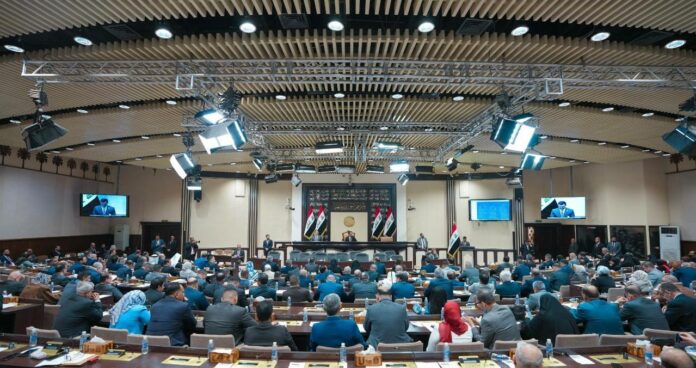Abdulaziz Aliwi Al-Essaawi: An academic specializing in electoral affairs.
Introduction:
Talking about electoral laws other than a proportional representation with the Sainte-Laguë mechanism is no longer viable in the current stage after the Council of Representatives passed on March 20, 2023, the third amendment to the law of elections of the governorates councils. The forces and parties objecting to the amendment can search for mechanisms to adapt to it, instead of objecting to it, which may not alter anything in the presence of a parliamentary majority that allowed its passage and is capable of obstructing any attempts to amend it under the current parliamentary equation.
When inspecting the objectors, the majority of them fall within what is now known in Iraq as “emerging forces,” which appeared after 2019, whether they were related to the October movement or other new forces that did not have a political presence before this date.
Since objection alone could not be productive, continuing political action requires adapting to any electoral law. Therefore, since we are talking today about proportional representation with the Sainte-Laguë mechanism, emerging forces will find themselves facing more than one option to bypass the Sainte-Laguë equation, which will be very harsh on small parties and independents who do not join the elections within large alliances.
First: The application of proportional representation in Iraq
The transition of any country to a democratic system of governance and the promise to the people of being a source of power requires the existence of a mechanism through which the voters’ wills can be converted into seats in the legislative authority through the free expression of their desires. This mechanism is called the electoral system, which if it is sound, then everything that follows it is reasonable, and the election results are transparent and fair. If not, the election results are distorted and do not reflect the true desires of the voters.
Regarding Iraq, the electoral system adopted proportional representation from the first elections held in the country in 2005 until the 2018 elections, before moving to Election Law No. (9) of 2020, which divided the provinces into multiple electoral districts. This law was legislated amidst rapidly changing popular and political variables following the protests that erupted in October 2019 and its repercussions. It represents a new experience added to its predecessors. All of these experiences constitute the electoral balance of the democratic process in Iraq, which is currently witnessing a wide debate about the most appropriate electoral system.
While there is agreement that the proportional representation system often leads to political instability and produces weak consensus governments, it has been applied in Iraq since the first legislative elections were held in 2005. Throughout this period, the elections and their results have caused deep disagreements between competing parties, indicating that reaching an electoral system that satisfies all parties is extremely difficult. The electoral system that translates voters’ voices into seats in the legislative authority requires a set of laws, procedures, and institutions that facilitate its work. Any malfunction in the electoral system makes it subject to doubt, as happened in the Iraqi electoral systems since 2005.
However, this does not contradict the great importance of the electoral system for a country like Iraq, which has recently become a democracy. A fair electoral system ensures political stability and good governance, which is crucial for the country’s future.











